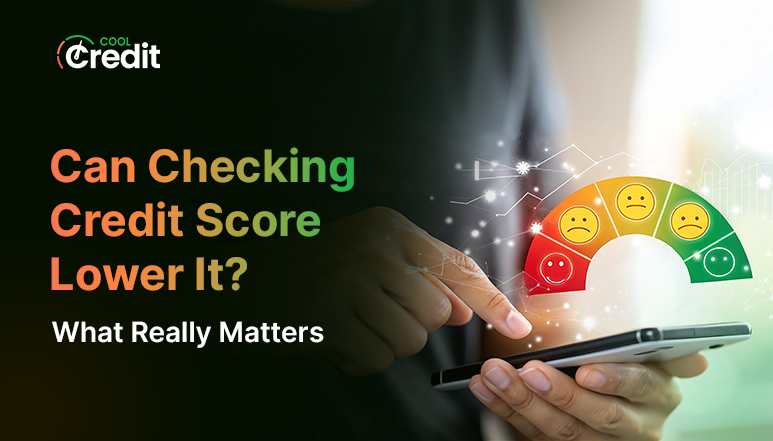
FICO Score 8 vs. FICO Score 9: Which One Matters More?
Your credit score isn’t just a number. It’s a story of how you handle money. Between FICO Score 8 and FICO Score 9, every payment, balance, and spending habit matters. These scores show lenders how reliable you are with credit. When you pay on time and keep your balances low, your score grows stronger. If you miss payments or spend too much, it drops. That’s how simple it is.
Knowing how these scores work helps you take control of your financial future. You’ll understand what lenders look for and what steps help you improve faster. In this guide, you’ll learn how small habits can make a big difference in your credit journey.
Optimize Your FICO Score with Smart AI Tools
Sign Up NowFICO Score
Your FICO score shows how well you handle credit and payments. It’s a three-digit number. And it usually falls between 300 and 850. The higher your score, the better your chances of getting loans or credit. Why? Because lenders see you as someone who manages money responsibly.
Fair Isaac Corporation is the name of the company that built this system. Lenders have used it since 1989 to check how likely you are to repay. It’s one of the most trusted ways to measure your creditworthiness.
Understand Your Credit Score Range
Here’s a simple breakdown to help you see where you stand and what to do next.
| Credit Level & Score Range | What It Means | What You Can Do |
| Poor Credit (300 – 579) | You might find it hard to get loans or credit cards. Lenders often charge higher rates to stay safe. | Pay bills on time and use less credit. Small, steady steps help you move up. |
| Fair Credit (580 – 669) | You’ve made progress, and lenders start to notice your improvement. Getting approved gets easier, but rates are still moderate. | Keep your payments regular and debt low. This stage rewards patience and discipline. |
| Good Credit (670 – 739) | You’re in a solid spot where lenders trust you more. You can qualify for better rates and offers. | Avoid missed payments and control your spending. Consistency helps you grow further. |
| Very Good Credit (740 – 799) | You’re a responsible borrower with access to top-tier credit offers. You save money with lower interest and better perks. | Review your credit report often and stay consistent with payments. Stay alert and reliable. |
| Exceptional Credit (800 – 850) | You’re at the top, and lenders trust you fully. You get the best offers, lowest rates, and easy approvals. | Keep your good habits strong and monitor your credit activity. It’s all about maintaining balance. |
How Your FICO Score Really Works
Your FICO score has various parts. Each part plays a different role, and together they shape your overall score.
| Factor | What It Means | Why It Matters |
| Payment History (35%) | Shows if you pay bills on time. | Missed or late payments can lower your score fast. |
| Amounts Owed (30%) | Tells how much credit you’re using. | High balances make you look risky to lenders. |
| Length of Credit History (15%) | Tracks how long you’ve used credit. | A longer history builds lender trust. |
| New Credit (10%) | Counts how often you apply for credit. | Too many new applications can drop your score. |
| Credit Mix (10%) | Looks at the types of credit you have. | A mix of loans and cards shows balance and reliability. |
There Are Different Versions of Your FICO Scores
You might be surprised to know there isn’t just one FICO score. There are many versions — and for good reasons. FICO keeps updating its scoring model to match modern financial behavior. Each version adds better data and smarter analytics to judge credit risk.
But here’s something interesting — not all lenders switch right away. Some prefer sticking with older versions they already use. Others move to the latest ones for more accuracy and fairer evaluations.
Not Every FICO Score Works the Same Way
You might think your credit score is just one number. But lenders actually use different FICO Score versions depending on what kind of loan you apply for. Each version focuses on specific details that help lenders understand how you handle credit.
- FICO Score 8 — The Most Common One
This is the version most lenders prefer. It’s widely used for credit cards, auto loans, and personal loans. It reacts quickly if you use a large part of your credit limit. So keeping your credit utilization low helps you maintain a good score.
- FICO Score 9 — The More Forgiving Model
This version takes a softer approach to your debt. It’s more lenient with medical bills and ignores paid collection accounts. If your rent payments are reported, they can even help your score. Some lenders now use it for credit cards and personal loans, too.
- FICO Scores 2, 4, and 5 — The Mortgage Scores
These are older models, but they still matter if you’re buying a home. Mortgage lenders, including Fannie Mae and Freddie Mac, rely on these versions. They pay close attention to your payment history and any past negative marks. So missing payments here can impact your chances of loan approval.
- FICO Auto Scores 8 and 9 — For Car Loans
These versions are built specifically for auto financing. They focus more on your previous auto loan behavior. If you’ve been consistent with your car payments, that will work in your favor. And a strong payment history can help you qualify for better loan terms.
- FICO Bankcard Scores 8 and 9 — For Credit Cards
Credit card companies often use these versions to review your application. They look at how you manage your credit cards and revolving accounts. The score ranges between 250 and 900, unlike the standard 300–850 range. It helps lenders see how responsible you are with regular credit usage.
- FICO Scores 10 and 10T — The Newest Versions
These are the latest and most advanced models from FICO. But they’re not used by many lenders yet because of system updates. FICO 10T studies your credit trends over time, not just your current activity. It gives a deeper look at how you use credit month after month.
There Are Industry-Specific FICO Scores
Different industries have their own versions of FICO scores. For example, auto lenders use a version made for car loan behavior. Credit card issuers use a version called “bankcard,” focused on card payments. This helps lenders make smarter, product-specific decisions for each customer.
▪ Your Most Common FICO Versions
The FICO Score 8 is the one you’ll hear about most often. It’s used widely, and the average score for it is around 715. Another version, FICO Score 9, came out in 2014 with a few improvements. It’s becoming popular, but many lenders still rely on the FICO 8 Score today.
▪ FICO Scores Keep Evolving for the Better
Think of FICO scores like your phone software. You get updates that make things smoother, faster, and more secure.
FICO does the same. Every update makes scoring fairer and more accurate. It uses new technology and real-world data to reflect how people use credit now.
In the end, these updates help both you and the lender. Lenders make better decisions, and you get credit that truly fits your profile. That’s how FICO keeps the process fair, modern, and simple for everyone.
▪ FICO Scores Keep Evolving for the Better
Think of FICO scores like your phone software. You get updates that make things smoother, faster, and more secure.
FICO does the same. Every update makes scoring fairer and more accurate. It uses new technology and real-world data to reflect how people use credit now.
In the end, these updates help both you and the lender. Lenders make better decisions, and you get credit that truly fits your profile. That’s how FICO keeps the process fair, modern, and simple for everyone.
What Is FICO Score 8?
FICO Score 8 is one of the most commonly used credit scoring models. It helps lenders see how responsibly you handle credit and payments. Your payment history and how much of your available credit you use play the biggest roles in shaping your score.
If you often miss due dates or keep high balances, your score drops fast. And here’s the tricky part—this model doesn’t separate paid and unpaid collections. That means even if you’ve cleared your dues, it still counts against you.
Lenders prefer this version because it gives a realistic picture of your financial habits. It shows how dependable you are when it comes to repaying what you owe. To improve your FICO Score 8, focus on paying bills on time and keeping your credit card balances low.
What Is a FICO Score 9?
FICO Score 9 came in as a fairer, more updated version. It gives you a better chance to recover after past mistakes. This model ignores paid collection accounts completely, so once you’ve settled them, they stop pulling your score down.
Medical debts also have less impact, which offers a bit of relief if you’ve faced hospital bills. And if your landlord reports rent payments, they can actually help you build credit.
It focuses more on your current financial behavior than your old slip-ups. That’s why many lenders see it as a more accurate reflection of your real financial health. Stay consistent with payments and keep debts under control—your FICO Score 9 will start showing it.
FICO Score 8 vs FICO Score 9 Differences: The Major Ones
Let’s see how FICO Score 8 and FICO Score 9 treat things like debt, rent, and payments.
| Category | FICO Score 8 | FICO Score 9 |
| Medical Debt | Treats medical debt the same as other loans. Even small unpaid medical bills can lower your score. | Paid medical debts are removed from your score. Once cleared, they no longer affect your credit. |
| Collection Accounts | Doesn’t care if the collection is paid or not. Both can hurt your score equally. | Paid collections are ignored. Only unpaid ones impact your score. |
| Rent Payment History | Rent payments aren’t included. Even if you pay on time, it doesn’t help your score. | Rent payments count if reported. Regular, on-time rent can now boost your credit. |
| Authorized User Accounts | Includes accounts where you’re just an authorized user. Someone else’s behavior can change your score. | Gives less weight to shared accounts. Focuses more on your personal credit activity. |
| Credit Utilization | Looks at how much credit you use compared to limits. High usage lowers your score. | Measures usage more smartly. Short-term balance spikes don’t hurt as much. |
| Fairness & Accuracy | Can be tough if you’ve recently paid off debts or had medical bills. | Feels fairer and more accurate. Rewards good habits and real financial behavior. |
Building Your Credit Score Takes Time, But It’s Worth It
Your credit score doesn’t grow overnight. It builds slowly through smart habits and consistency. Every payment, balance, and account matters in shaping it.
▪ Make Payments on Time
Your payment history plays the biggest role in your credit score. Paying bills on time shows lenders that you can manage money responsibly. Even one missed payment can pull your score down, so reminders or auto-pay can help.
▪ Keep Your Credit Use Low
How much credit you use compared to your limit really matters. Try keeping it below 30%, but closer to 10% is even better. It tells lenders that you use credit wisely without depending on it too much.
▪ Keep Old Accounts Open
The longer you’ve had your accounts, the better it reflects on your report. Closing them too soon can shorten your credit history and slightly affect your score. A long and steady record shows reliability over time.
▪ Maintain a Healthy Mix of Credit
Having both credit cards and loans can work in your favor. It shows you can handle different types of debt responsibly. But opening new accounts only for the sake of variety isn’t helpful.
▪ Apply for Credit Only When You Need It
Each time you apply for credit, a hard inquiry is added to your report. Too many inquiries in a short time can lower your score temporarily. So, apply only when it’s really needed.
| Note: It’s good to review your credit report from time to time. You can catch errors early and fix them before they affect your score. A clean record keeps your progress on track. |
Build a Strong Credit Score with CoolCredit
Your credit score shapes your options for housing, loans, and even jobs. Still, many people don’t realize how much their credit profile influences their daily life.
This is why rebuilding and improving your financial profile is important. And for doing so, all you need is the right plan and steady action.
That’s where CoolCredit helps you. It’s a system that helps you understand, improve, and maintain your credit score.
Ready to Improve Your FICO Score? Try AI Repair
Get StartedHere’s How CoolCredit Makes It Simple
- You’ll get alerts whenever something changes in your credit report. This helps you stay aware and take action before small issues turn serious.
- Sometimes your report has errors or outdated information. CoolCredit finds those issues and manages the dispute process for you—from drafting letters to submissions.
- With the Booster Payment Plan, your timely payments are reported automatically. It helps you build a strong credit history.
- If you’re unsure about something, Expert Assist connects you with real professionals. They guide you through complex issues and help you plan long-term stability.
Improving your credit isn’t hard when you have the right support. CoolCredit brings awareness, technology, and expert help together in one place. It turns every smart decision you make into lasting financial confidence.
Conclusion
Improving your credit score isn’t as hard as it sounds. It just needs focus and consistency. Every payment you make and every balance you manage plays a part. But you don’t have to do it alone.
CoolCredit helps you track changes, find issues, and fix them on time. It also guides you with simple steps that actually work. When you stay consistent, your score improves, and lenders start trusting you more.
FAQs
Q: Which Credit Score Is Most Accurate For Understanding My Real Standing?
A: FICO scores are most accurate because lenders widely rely on them for decisions. They reflect your true repayment habits and help predict your borrowing reliability.
Q: How Can I Recover From a Credit Score Drop Quickly?
A: You can rebuild your score by lowering debts and staying consistent with payments. When you show discipline month after month, your score starts rising steadily.
Q: Will Checking My Own Credit Score Affect My Rating?
A: When you check your credit, it’s a soft pull that never hurts you. It’s actually smart to review your report often and track progress confidently.
Q: Can I Build Credit Even If I Don’t Have a Credit Card?
A: Yes, you can report rent or utility payments to show consistent financial reliability. Using secured loans or credit-builder programs also helps strengthen your credit history.
Q: How Often Should I Review My Credit Report for Errors?
A: You should check your report every few months to catch inaccuracies early. Spotting and disputing mistakes quickly keeps your credit journey smooth and stable.







